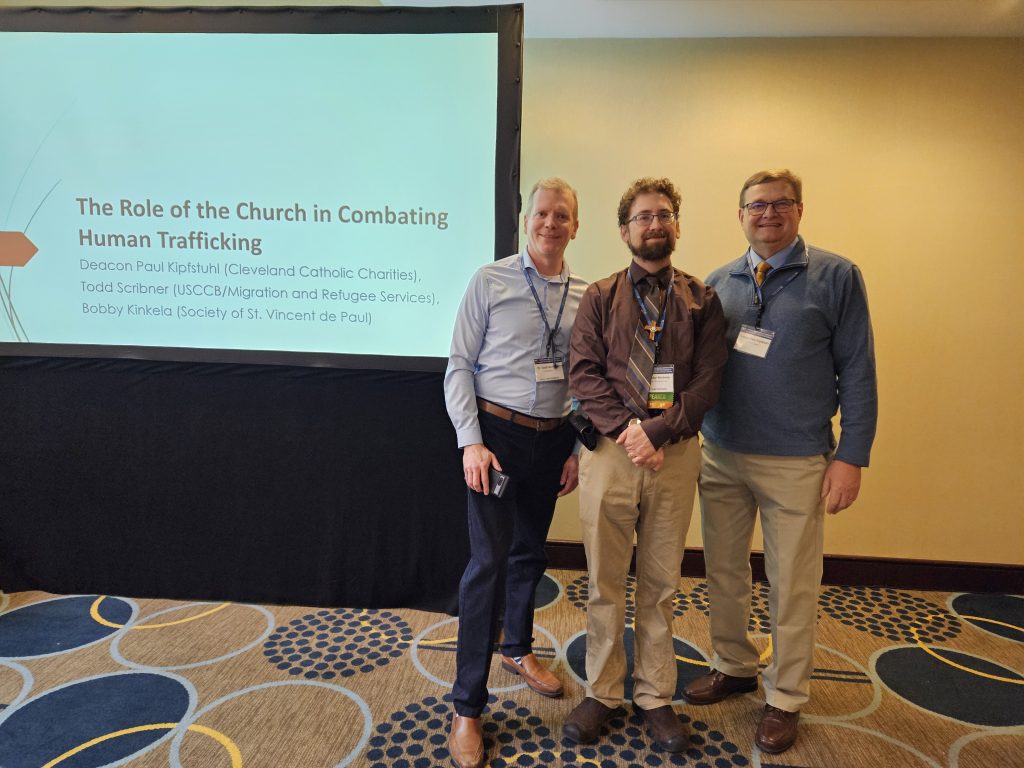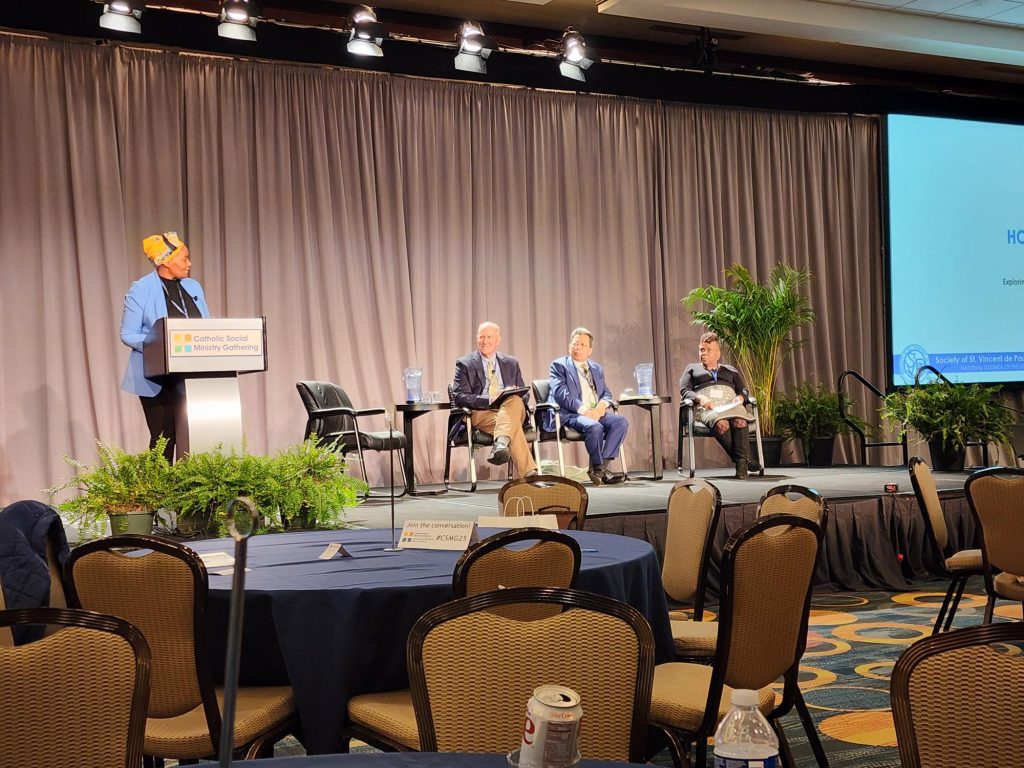Aggregation: Your Official Enrollment into the Vincentian Family

By Pam Hudson Johnson, National Director of Membership Services
SVdP’s Rule and practices require that Conferences and Councils take the necessary steps to become membered into the International Confederation of the Society of St. Vincent de Paul. This process of becoming membered as a Conference is known as aggregation. The process of membership as a Council is known as institution.
The National Council strongly urges Conferences and Councils to review your official status. If you find that you have not been formally accepted into the Society internationally, please take immediate steps to rectify that oversight.
Photo: SVdP Georgia’s Wall of Aggregation
How do I know that my Conference has been Aggregated?
When you are formally recognized as an official SVdP entity in solidarity and adherence to the Rule, your Conference will receive a Letter of Aggregation, or your Council will receive a Letter of Institution.
New Conferences are eligible to apply for aggregation after one year operation, filing an annual report and contributing to solidarity. Councils do not have a waiting period and can apply for institution immediately after formation.
The National Council office is pleased to announce the recent arrival of 26 Letters of Aggregation and 6 Letters of Institution all dated December 15, 2024 from the International Council. Applications from around the world are processed and there is a 6-9 month delay in receiving the certificates.
History of Aggregation
From the very beginning, Society members wanted to retain the closeness of brotherhood, and as such, they were hesitant about subdividing and forming numerous Conferences. When they realized the need for additional Conferences, they wanted to preserve a sense of common unity and solidarity with one another. To preserve this unity and solidarity, official enrollment in the Vincentian family has always remained a function of the Council General itself. The Council General established the application process and announces new affiliations.
In the Manual page 27 and throughout the Rule (Sec 1.3.8; Sec 2.6 & Sec 3 Statute 6) you will find an official definition and explanation of the process of aggregation for Conferences and institution for (Arch) Diocesan Councils and Districts.
Benefits of Aggregation
Once your Conference is aggregated or your Council is instituted, you will be eligible for participation in national programs such as Friends of the Poor® and Systemic Change grants and Certificates of Appreciation.
Is your Conference aggregated, and Council instituted? To learn more, contact Membership Services at membership@svdpusa.org.















